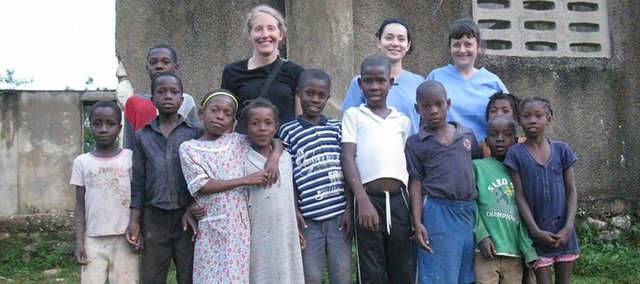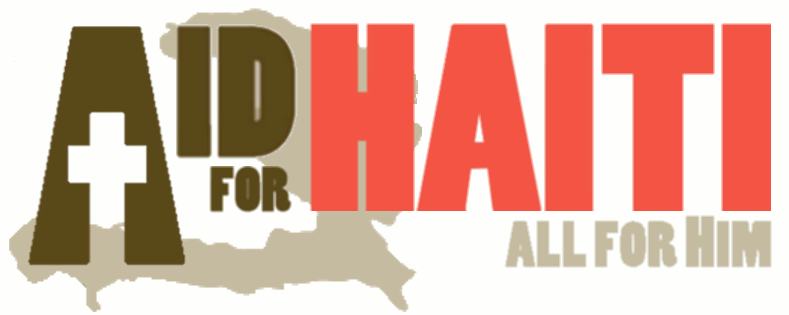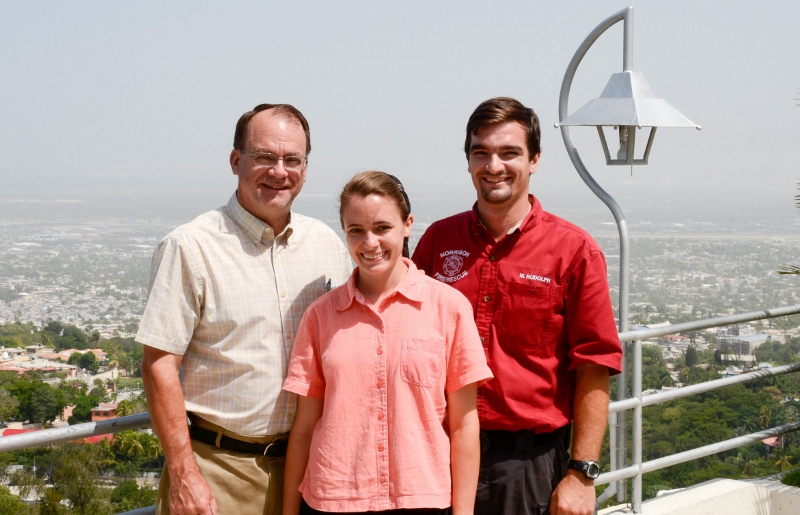Lawrence health care workers aid remote village in Haiti
The patients started lining up at the crack of dawn. They had come from hours away, up the mountain, from areas so remote they made this dot on the map seem like a big city in comparison.
They presented a wide range of ailments: a large facial tumor, a broken arm, cancer. Some would likely not survive — not because their illnesses were too acute, but because they were too far from an adequate medical facility and too poor even if they were closer.
Villagers started waiting early in the morning to see the doctors and nurses from Lawrence who ran a mobile medical clinic in Haiti last month.
They made the treacherous, exhausting trek to Haiti’s Dos Bois Rouge region to see people we often take for granted: doctors and nurses from Lawrence. In the jungles of Haiti, though, they were like visitors from another planet, aliens there solely to help.
Caleb Trent, an emergency room doctor at Lawrence Memorial Hospital, first went to Haiti in the mid-2000s with medical school classmates to investigate a rash of neck tumors, discovering that it was being caused by an iodine deficiency. They saw numerous nongovernmental organizations doing mission work in Haiti’s population centers but seemingly none in the more remote parts of the country.
“We were impressed with the medical need and the lack of resources these people had compared to what was available in the city,” Trent said. So in 2008, they started Aid for Haiti, a Christian charity that provides health care and spiritual training to Haitians.
Trent, 34, moved to Lawrence, his wife’s hometown, last year, starting his job at the hospital in July. At his church, Lawrence Bible Chapel, he noticed that the pews were filled with people working in or studying health care. So he pitched the idea for a church-sponsored trip to Haiti. Five current or former Lawrence residents signed up, and last month the group traveled to Dos Bois Rouge, near the border with the Dominican Republic.
In Haiti, it was hard to ignore the trash everywhere. It was also hot — very hot. Fresh mangoes and bananas were sold at roadside stands. People wore hand-me-down clothes from the U.S.; Trent said he once saw a guy sporting a John McCain “Road to Victory” shirt from 2008. The locals, while poor, dressed and cleaned up well. Clothes, vehicles and homes were splashed with bright colors, perhaps as a way to lift the spirits but also be representative of the Caribbean culture.
The drive to the village was an adventure in itself: The gang packed in a Bobcat utility vehicle filled with medical supplies, including several 5-gallon drums of medications, driving up rocky, steep mountains.
Lawrence nursing students Sarah Bradshaw and Elijah Penny do intake at a makeshift medical clinic in Haiti last month.
They finally arrived at the village, a grouping of shacks alongside dirt roads, kids standing around chewing on sugarcane. The locals were happy to see the contingent from Lawrence, writing a greeting on a chalkboard to welcome them.
The health care workers set up a clinic, using tarps as a roof to keep the rain out. Patients would check in, with Lawrence nursing students Sarah Bradshaw and Elijah Penny taking their vitals. Cindy Mast, a pediatric physician’s assistant in Lawrence, would see the kids, while Trent would treat the adults. Sonja Everhart, a surgical nurse at Lawrence Memorial Hospital, and Shannon Harvey, a Lawrence native and nurse from Colorado, helped out along the way. Ailments included hypertension — “It wasn’t uncommon to see a blood pressure of 180 over 90,” Trent recalled — and acid reflux — not surprising when many of the kids’ breakfasts consisted of bread and coffee.
By the time the group woke up every morning at 6 or 7 a.m., there were already dozens of people waiting to be seen. The missionaries would work straight through until 8 or 9 p.m., treating respiratory illnesses, fungal infections, elephantiasis, and children so malnourished they looked much younger than they were.
At one point, a woman came in, lethargic, complaining of fatigue. She could hardly walk, needing help to even get into the clinic. It turned out she was pregnant and would have been fine had she been in a developed country with access to nausea medicine and prenatal vitamins.
Another patient, a man in his early 40s, was gaunt and emaciated, with several masses in his abdomen. He had cancer that was metastasizing, the doctors believed. But because the area they were in was so remote and the man was so poor, his chances for survival were slim. The group couldn’t treat him, save for giving him some medication to keep his stool regular, so it prayed for him.
“If you make a difference in his life, you make a difference in his eternity,” Trent said. It also helps that Haitians are generally more accepting of death than their American counterparts, he added, having to deal with it at seemingly every turn. Their life expectancy, 57, is roughly two decades shorter than it is in the United States.
A medical mission trip to Haiti last month included current and former Lawrence residents, from left, Sonja Everhart, Sarah Bradshaw, Shannon Harvey, Elijah Penny, Cindy Mast and Caleb Trent.
Trent also said that as hard as it is, you have to realize that you can’t help everybody, that the need is so immense that any assistance makes a difference.
“You look at what you can do, and you’re thankful for the people who you can help,” he said. “You realize that the people you did help are better because we are there, so you focus on the positive.”
On the last day, the team worked for 15 hours, trying to treat as many people as they could before they had to go home, bringing the total to 400 over three and a half days. The Haitians returned the favor, giving them gifts like fruit and blankets and singing hymns with them.
Trent, the board chairman for Aid for Haiti, plans to return for another medical mission in September or October and, prior to that, pastor-teaching training in August. Part of the mission of Aid for Haiti is to educate, showing Haitians not only how to care for their ailments and prevent further disease but also be their best spiritual selves.
“I think there will always be a need there,” he said, “but as people become more educated and dependent on themselves, hopefully that will change.”
http://www2.ljworld.com/news/2013/jun/11/lawrence-health-care-workers-aid-remote-village-ha/



Published by